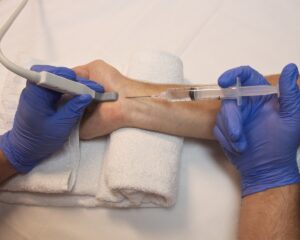Caring for elderly patients in the perioperative setting presents unique challenges for anesthesiologists. As the global population ages and life expectancy increases, more older adults are undergoing surgical procedures, many of which are complex and involve significant physiological stress. Anesthesiologists must be particularly mindful of the interplay between age-related physiological changes, comorbidities, altered pharmacodynamics and pharmacokinetics, and increased vulnerability to perioperative complications.
One of the primary concerns for anesthesiologists is the diminished physiological reserve seen in elderly patients. With aging, there is a decline in cardiovascular, pulmonary, renal, and hepatic function, even in individuals who appear healthy. These changes reduce the body’s ability to compensate for the stresses of anesthesia and surgery. For example, a reduced cardiac output and impaired baroreceptor reflexes make elderly patients more prone to hypotension under anesthesia. Similarly, age-related stiffening of the chest wall and a decrease in pulmonary elasticity impair gas exchange and increase the risk of postoperative pulmonary complications, such as atelectasis and pneumonia.
Pharmacological considerations are also paramount. Elderly patients often exhibit increased sensitivity to anesthetic agents due to alterations in receptor sensitivity and changes in drug distribution. For instance, the minimum alveolar concentration (MAC) for inhalational agents decreases with age, requiring careful titration to avoid overdose. Hepatic metabolism and renal clearance may be impaired, prolonging the half-life of many drugs. Medications commonly used in anesthesia—such as opioids, benzodiazepines, and muscle relaxants—must be dosed cautiously to prevent prolonged sedation, respiratory depression, or increased susceptibility to delirium.
Cognitive function is another major area of concern. Older adults are at significantly higher risk of postoperative cognitive dysfunction (POCD) and delirium. Delirium is associated with increased morbidity, longer hospital stays, and higher mortality rates. Factors such as preexisting cognitive impairment, the use of anticholinergic or sedative medications, and the stress of surgery itself contribute to the development of delirium. Anesthesiologists must screen for baseline cognitive deficits in elderly patients preoperatively and consider strategies to reduce risk, such as minimizing the use of deliriogenic drugs, maintaining adequate pain control, and ensuring stable hemodynamics throughout the procedure.
Healthcare providers must be aware of polypharmacy when providing care for the elderly population. Many patients take multiple medications for chronic conditions, which increases the risk of drug interactions, adverse effects, and complications during anesthesia. A thorough medication review is essential to identify agents that may interact with anesthetic drugs or contribute to hemodynamic instability. For instance, beta-blockers and antihypertensives can blunt compensatory responses to blood pressure changes, while anticoagulants and antiplatelet agents increase bleeding risk and may necessitate perioperative management adjustments.
Nutritional status and frailty must also be assessed. Frailty, a syndrome characterized by decreased strength, endurance, and physiological function, is an independent predictor of poor surgical outcomes. Malnourishment and sarcopenia can impact wound healing, immune response, and tolerance to the physiological stress of surgery. Preoperative assessments should include evaluation of nutritional risk and functional status, with efforts made to optimize these factors prior to elective procedures.
Finally, communication and informed consent present their own set of challenges. Cognitive impairment, sensory deficits, and health literacy can complicate discussions about anesthesia and surgical risks. It is important to ensure that elderly patients, along with relevant family members or caregivers, fully understand the expected course and potential outcomes of their procedures. Shared decision-making should involve a realistic discussion about goals of care, especially for high-risk procedures, and should take into account the patient’s values, preferences, and overall health status.
Anesthesiologists caring for elderly patients must take a comprehensive, individualized approach that considers the unique physiological and psychosocial aspects of aging. Careful preoperative assessment, judicious intraoperative management, and vigilant postoperative monitoring are essential to improving outcomes and ensuring patient safety in this vulnerable population.



